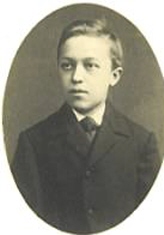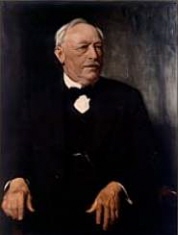|
|
Georg Schumann (Composer)
|
|
Born: Oct. 25 1866 - Königstein, Germany
Died: May 23., 1952 - Berlin, Germany |
|
The German conductor and composer, Georg (Alfred) Schumann, wa the brother of the organist and composer Camillo Schumann. He studied with his father, the town music director, and with his grandfather, a Kantor. Then he took courses in Dresden and at the Leipzig Conservatory with Reinecke and Salomon Jadassohn. In 1887 he received the Beethoven Prize.
Georg Schumann conducted a choral society in Danzig from 1890 to 18796, and the Bremen Philharmonic from 1896 to 1899. In 1900 he settled in Berlin, where he was made conductor of the Singakademie. He was made a member of the Akademie der Künste in 1907, teaching a master-class in composition from 1913 to 1945. He was elected its president in 1934. |
|
Works |
|
Zur Karnevalszeit , orchestral suite; Liebeifrühling, overture; Lebensfreude, overture; 2 symphonies
2 violin sonatas; 2 piano quintets; Cello Sonata; Piano Trio; Piano Quartet
Ruth, oratorio (1909); other choral works, with orchestra: Amor und Psyche, Totenklage, Sehnsucht, and Das Tranenkrüglein
Numerous songs
Piano pieces |




 |
|
Source: Bakerís Biographical Dictionary of 20th Century Classical Musicians (1997)
Contributed by Aryeh Oron (April 2006) |
|
Recorstruction of J.S. Bach's Vocal Works |
|
Work |
Year |
|
Reconstruction of Cantata BWV 216, scored for 2 flutes, oboe, and violoncello + Klavier (very likely piano) |
1924 |
|
Use of Chorale Melodies in his works |
|
Title |
Chorale Melody |
Year |
|
Variations on Wer nur den lieben Gott läßt walten for Organ and Orchestra, Op. 24 |
Wer nur den lieben Gott läßt walten |
|
|
Bibliography |
|
P. Hielscher : Georg Schumann (Leipzig, 1906)
H. Biehle: Georg Schumann (Münster, 1925) |
|
| |
|